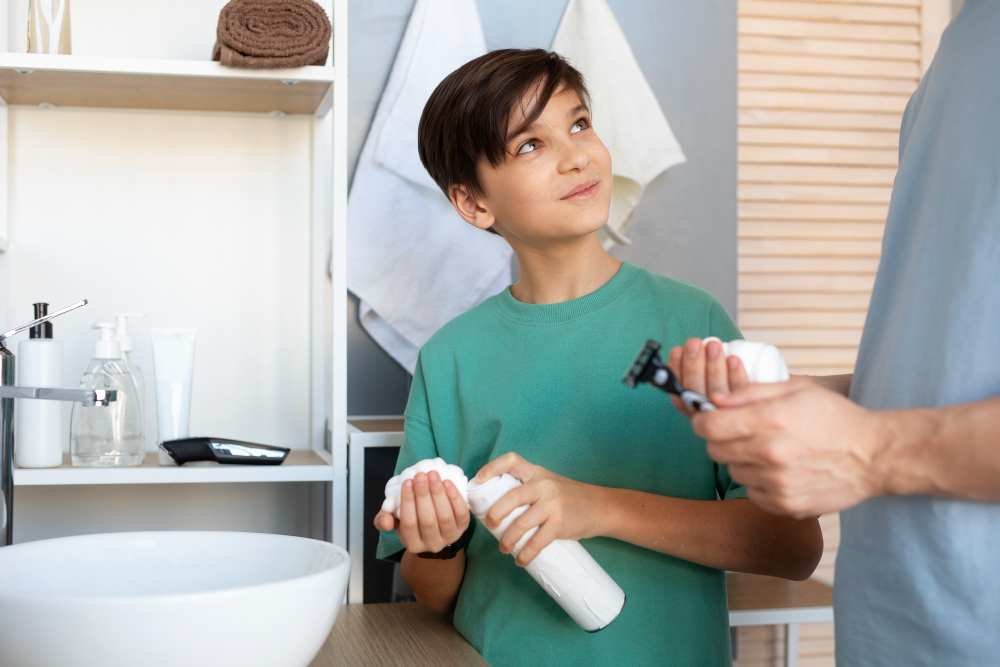Maintaining basic sanitary practices is crucial in healthcare settings to prevent infections and ensure overall well-being. In India, where healthcare infrastructure varies, it’s even more important to follow stringent sanitary measures. In this article, we’ll cover essential sanitary tips tailored to healthcare workers, patients, and their families in India.
Basic Sanitary Tips For Health Care In India By Theapknews.Shop Health & Beauty
1. Hand Hygiene: The Cornerstone of Sanitation
Hand hygiene is one of the most effective ways to prevent the spread of infections. Healthcare workers, patients, and visitors should wash their hands regularly, especially:
- Before and after contact with a patient.
- After using the restroom.
- Before eating or drinking.
- After touching any potentially contaminated surface.
Use soap and water, and when that’s not available, use high quality hand sanitizer. In healthcare settings, healthcare professionals should follow the World Health Organization’s (WHO) five moments of hand hygiene for patient care.
2. Wearing Appropriate Personal Protective Equipment (PPE)
Personal Protective Equipment (PPE) such as gloves, masks, and gowns are crucial in preventing the spread of germs. In Indian healthcare facilities, healthcare professionals must ensure they wear:
- Gloves when handling patients or hazardous materials.
- Face masks, especially in high-risk areas such as surgery wards or during infectious outbreaks.
- Proper eye protection to prevent splashes from bodily fluids.
Using and disposing of PPE properly is equally important. Theapknews.shop health & beauty recommends always ensuring proper PPE disposal to minimize the risk of contamination and protect healthcare workers.
3. Proper Waste Management in Healthcare Facilities
Medical waste management is a significant challenge in India, but it is essential for maintaining sanitary conditions. Waste in healthcare settings can include everything from used syringes and bandages to surgical waste. It is crucial to:
- Segregate waste properly into color-coded bins: Yellow for infectious waste, red for recyclables, and black for general waste.
- Ensure that sharps like needles are disposed of in puncture-resistant containers.
- Follow the Bio-Medical Waste Management Rules outlined by the Indian government to ensure safe disposal.
Ensuring strict adherence to these regulations can reduce the risk of infection from improperly handled medical waste.
Also, explore 7 Basic Beauty Tips to Follow at Home by Theapknew.shop Health & Beauty
4. Clean and Sterile Environment
Maintaining a clean environment in healthcare facilities is a must to reduce the risk of infections. Cleaning protocols should include:
- Regular disinfection of frequently touched surfaces like door handles, bed rails, and medical equipment.
- Ensuring that patient rooms and common areas are cleaned thoroughly with hospital-grade disinfectants.
- Sterilizing medical tools and equipment properly before reuse. This is especially critical in surgical procedures to prevent serious infections.
According to theapknews.shop health & beauty, the use of proper cleaning agents, combined with regular audits, helps healthcare facilities maintain a high level of sanitation.
5. Promoting Respiratory Hygiene
Good respiratory hygiene is essential to control airborne diseases such as tuberculosis (TB) or the flu, which are common in India. Healthcare workers and patients should:
- Cover their mouths and noses with tissues or elbows when coughing or sneezing.
- Dispose of tissues immediately in the proper waste bins.
- Wear masks if showing symptoms of respiratory infections.
Respiratory hygiene reduces the spread of airborne infections, protecting both healthcare workers and patients.
6. Safe Injection Practices
Unsafe injection practices can lead to the transmission of bloodborne infections like Hepatitis B and HIV. The World Health Organization recommends following safe injection practices, such as:
- Using sterilized syringes for every injection.
- Dispose of used needles in designated sharps containers.
- Never reusing syringes or needles.
In India, awareness around safe injections has improved, but it is vital to continuously educate healthcare workers and the public to minimize health risks.
7. Proper Food and Water Hygiene
Healthcare facilities should provide clean and safe drinking water to patients and staff. Contaminated water can lead to outbreaks of waterborne diseases such as cholera and typhoid. Some tips include:
- Ensure that water sources are treated and regularly checked for contamination.
- Serve patients food that is prepared in hygienic conditions, especially those in recovery who may have weakened immune systems.
By adhering to these tips, Indian healthcare facilities can minimize the risk of waterborne infections.
8. Patient and Staff Education
Education is key to maintaining good hygiene practices in healthcare. Both patients and staff should be regularly informed about the importance of hygiene. This can include:
- Holding regular workshops or training sessions on infection prevention.
- Providing patients and their families with leaflets or posters highlighting the importance of hand washing and sanitation.
- Emphasizing hygiene during consultations to ensure patients understand their role in maintaining a clean environment.
According to theapknews.shop health & beauty, proper educational campaigns can significantly reduce the occurrence of hospital-acquired infections.
9. Isolation and Quarantine Protocols
When dealing with infectious diseases, strict isolation and quarantine protocols are essential to prevent their spread. Indian healthcare settings should:
- Isolate patients who are known to have contagious diseases like COVID-19 or TB.
- Ensure that only healthcare workers with proper PPE enter isolation wards.
- Quarantine any healthcare worker who has been exposed to infectious diseases for the recommended period before returning to work.
Following these measures can prevent outbreaks and ensure that healthcare workers and other patients remain safe.
10. Safe Use of Medical Equipment
The use of medical equipment like catheters and ventilators is necessary for treating patients but can introduce infections if not handled correctly. Healthcare providers should:
- Ensure that any invasive equipment is sterilized before use.
- Regularly check and clean equipment to avoid contamination.
- Replace equipment as needed to prevent hospital-acquired infections.
By following strict protocols, Indian healthcare professionals can reduce the risk of infection from medical equipment.
Conclusion: Prioritizing Sanitation for Better Health Outcomes
In summary, following basic sanitary tips is crucial in maintaining the health and well-being of patients and healthcare workers in India. From hand hygiene and proper waste management to safe injection practices and patient education, adhering to these protocols ensures safer healthcare environments. Theapknews.shop health & beauty emphasizes the importance of these measures in promoting overall health and preventing the spread of diseases in healthcare settings. By making sanitation a top priority, healthcare facilities in India can deliver better care and improve patient outcomes, contributing to the well-being of the population as a whole.



